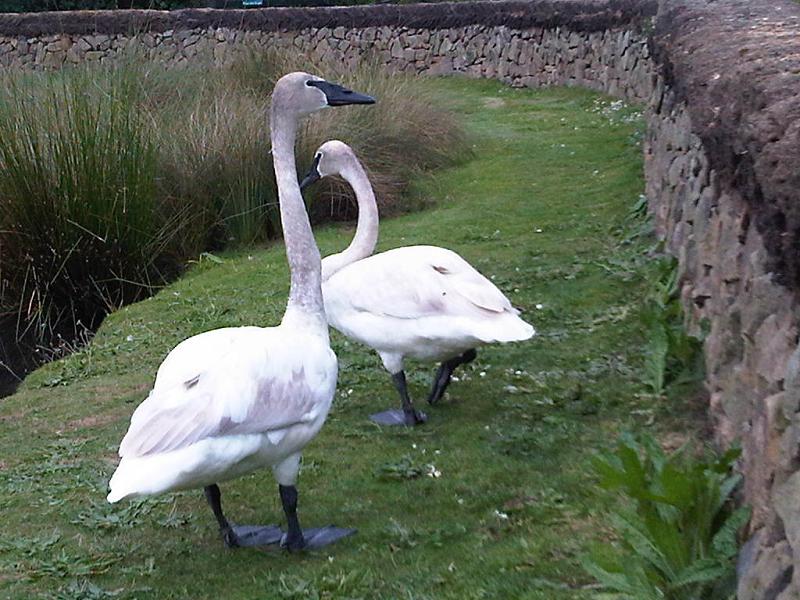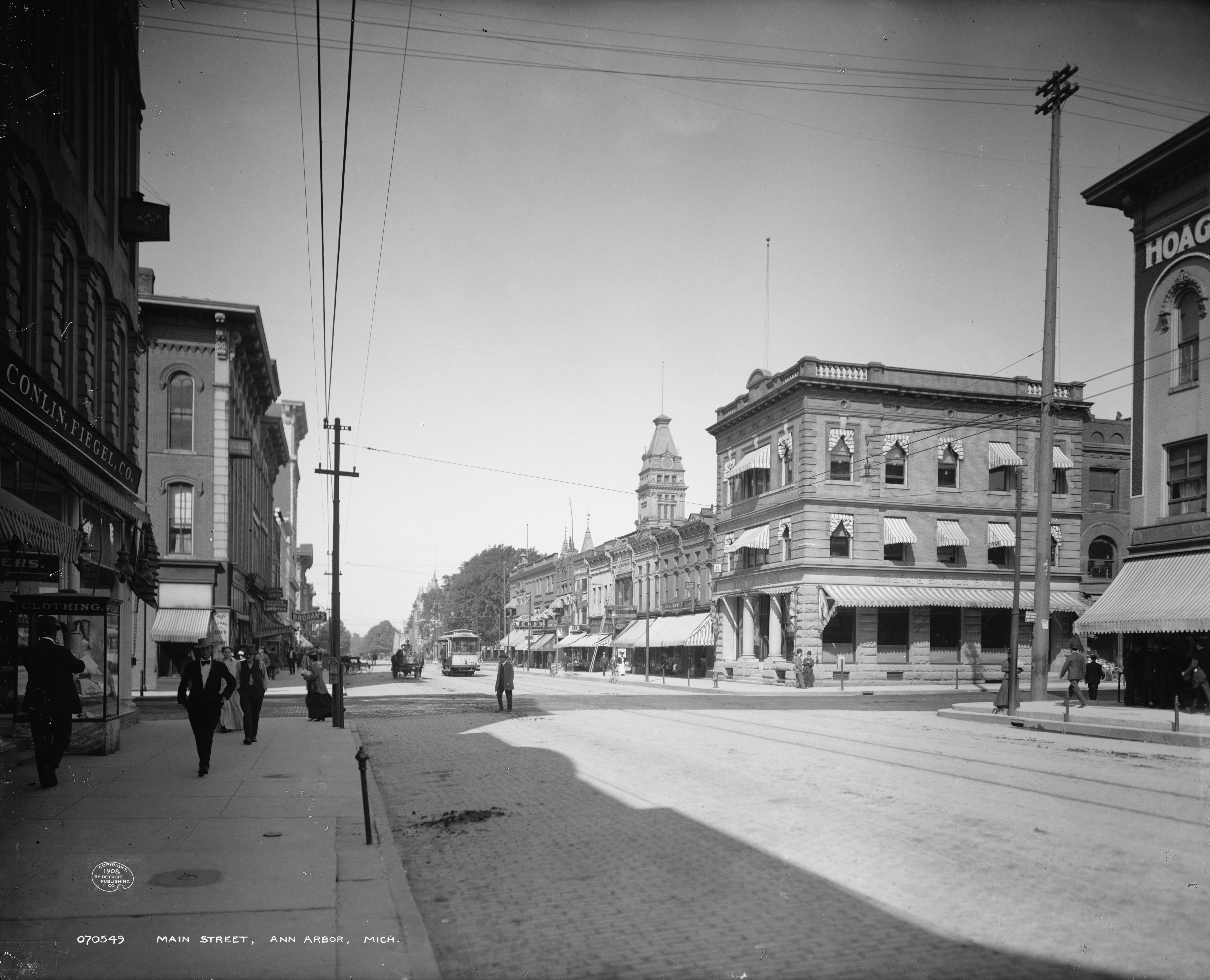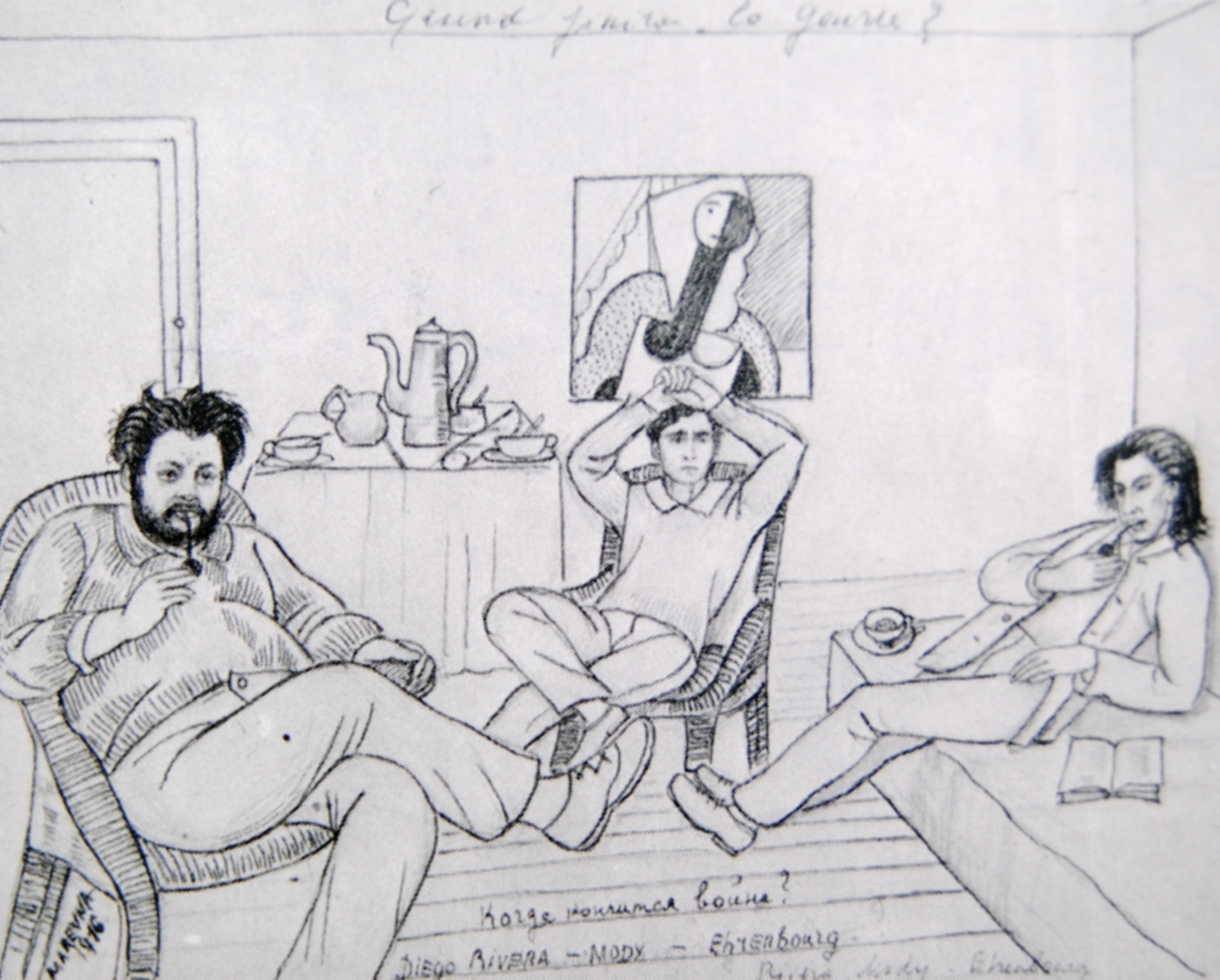|
Leland Stowe
Leland Stowe (November 10, 1899 – January 16, 1994) was a Pulitzer Prize winning American journalist noted for being one of the first to recognize the expansionist character of the German Nazi regime. Biography Stowe was born in Southbury, Connecticut. After graduating from Wesleyan University in 1921, where he was a member of a fraternity that later became a chapter of Kappa Alpha Society, he started working as a journalist and became a foreign correspondent in Paris in 1926 for the ''New York Tribune''. He won a Pulitzer Prize in 1930 for his coverage of the Reparations Conference in The Hague. Stowe was a runner-up for a second Pulitzer Prize in 1940 for his work as a war correspondent in World War II and his coverage of the Russo-Finnish War. In the summer of 1933, Stowe visited Nazi Germany. Shocked by its militarism, he wrote a series of critical articles that were not published as the articles were seen as too alarmist. Stowe published the articles in a book, ''Nazi G ... [...More Info...] [...Related Items...] OR: [Wikipedia] [Google] [Baidu] |
Pulitzer Prize
The Pulitzer Prizes () are 23 annual awards given by Columbia University in New York City for achievements in the United States in "journalism, arts and letters". They were established in 1917 by the will of Joseph Pulitzer, who had made his fortune as a newspaper publisher. Prizes in 2024 were awarded in these categories, with three finalists named for each: Each winner receives a certificate and $15,000 in cash, except in the Public Service category, where a gold medal is awarded. History Newspaper publisher Joseph Pulitzer gave money in his will to Columbia University to launch a journalism school and establish the Pulitzer Prize. It allocated $250,000 to the prize and scholarships. He specified "four awards in journalism, four in letters and drama, one in education, and four traveling scholarships". Updated 2013 by Sig Gissler. After his death on October 29, 1911, the first Pulitzer Prizes were awarded June 4, 1917; they are now announced in May. The '' Chicago Trib ... [...More Info...] [...Related Items...] OR: [Wikipedia] [Google] [Baidu] |
Ralph Edwards (homesteader)
Ralph Edwards, ( – July 3, 1977) was a pioneering British Columbian homesteader, amateur pilot and leading conservationist of the trumpeter swan. He received the Order of Canada in 1972 for his conservation efforts, See video. and is the namesake of the Edwards Range mountains. Edwards and his family were celebrated in a number of books and films, including Leland Stowe's best-selling ''Crusoe of Lonesome Lake'' (1957), which led to Edwards being the surprise honoree on the 1957 Christmas Day edition of '' This Is Your Life''. Biography Early life Edwards was born around 1891–92 in the mountains of North Carolina. After a few years he moved with his medical-missionary parents to India where he spent three years in the foothills of the Himalayas, until the age of eight, coming to love the mountains. He then returned to North Carolina for two years of school, and then to Massachusetts where he lived with his great-uncle helping him on his farm, developing a love of farming. ... [...More Info...] [...Related Items...] OR: [Wikipedia] [Google] [Baidu] |
Reader's Digest
''Reader's Digest'' is an American general-interest family magazine, published ten times a year. Formerly based in Chappaqua, New York, it is now headquartered in midtown Manhattan. The magazine was founded in 1922 by DeWitt Wallace and his wife Lila Bell Wallace. For many years, ''Reader's Digest'' was the best-selling consumer magazine in the United States; it lost that distinction in 2009 to '' Better Homes and Gardens''. According to Media Mark Research (2006), ''Reader's Digest'' reached more readers with household incomes of over $100,000 than '' Fortune'', ''The Wall Street Journal'', '' Business Week'', and '' Inc.'' combined. Global editions of ''Reader's Digest'' reach an additional 40 million people in more than 70 countries, via 49 editions in 21 languages. The periodical has a global circulation of 10.5 million, making it the largest paid-circulation magazine in the world. It is also published in Braille, digital, and audio editions, and in a large-type edition ... [...More Info...] [...Related Items...] OR: [Wikipedia] [Google] [Baidu] |
Academic Term
An academic term (or simply term) is a portion of an academic year during which an educational institution holds Class (education), classes. The school timetable, schedules adopted vary widely. Common terms such as semester, trimester, and quarter are used to denote terms of specific durations. In most countries, the academic year begins in late summer or early autumn and ends during the following spring or summer. Description An academic year is the time during which an educational institution holds Class (education), classes. An academic term is a portion of the academic year. The school timetable, schedules adopted vary widely. Types ''Semester'', ''trimester'' and ''quarter'' are all types of academic terms (the last two being mainly confined to American English), each differentiated by their duration as described below: * Semester () originally German, where it referred to a university session of six months, adopted into American usage in the early 19th century as a half ... [...More Info...] [...Related Items...] OR: [Wikipedia] [Google] [Baidu] |
Ann Arbor, Michigan
Ann Arbor is a city in Washtenaw County, Michigan, United States, and its county seat. The 2020 United States census, 2020 census recorded its population to be 123,851, making it the List of municipalities in Michigan, fifth-most populous city in Michigan. Located on the Huron River, Ann Arbor is the principal city of its Metropolitan statistical area, metropolitan area, which encompasses all of Washtenaw County and had 372,258 residents in 2020. Ann Arbor is included in the Metro Detroit, Detroit–Warren–Ann Arbor combined statistical area and the Great Lakes megalopolis. Ann Arbor was founded in 1824 by John Allen (pioneer), John Allen and Elisha Rumsey. It was named after the wives of the village's founders, both named Ann, and the stands of Quercus macrocarpa, bur oak trees they found at the site of the town. The University of Michigan was established in Ann Arbor in 1837, and the city's population grew at a rapid rate in the early to mid-20th century. A college town, ... [...More Info...] [...Related Items...] OR: [Wikipedia] [Google] [Baidu] |
University Of Michigan
The University of Michigan (U-M, U of M, or Michigan) is a public university, public research university in Ann Arbor, Michigan, United States. Founded in 1817, it is the oldest institution of higher education in the state. The University of Michigan is one of the earliest American research universities and is a founding member of the Association of American Universities. In the fall of 2023, the university employed 8,189 faculty members and enrolled 52,065 students in its programs. The university is Carnegie Classification of Institutions of Higher Education, classified among "R1: Doctoral Universities – Very high research activity". It consists of nineteen colleges and offers 250 degree programs at the undergraduate and graduate levels. The university is Higher education accreditation in the United States, accredited by the Higher Learning Commission. In 2021, it ranked third among American universities in List of countries by research and development spending, research expe ... [...More Info...] [...Related Items...] OR: [Wikipedia] [Google] [Baidu] |
Radio Free Europe
Radio Free Europe/Radio Liberty (RFE/RL) is a media organization broadcasting news and analyses in 27 languages to 23 countries across Eastern Europe, Central Asia, the Caucasus, and the Middle East. Headquartered in Prague since 1995, RFE/RL operates 21 local bureaus with over 500 core staff, 1,300 freelancers, and 680 employees. Nicola Careem serves as the editor-in-chief. Founded during the Cold War, RFE began in 1949 targeting Soviet empire, Soviet satellite states, while RL, established in 1951, focused on the Soviet Union. Initially funded covertly by the Central Intelligence Agency, CIA until 1972, the two merged in 1976. RFE/RL was headquartered in Munich from 1949 to 1995, with additional broadcasts from Portugal's Glória do Ribatejo until 1996. Soviet authorities jammed their signals, and Second World, communist regimes often infiltrated their operations. Today, RFE/RL is a private 501(c)(3) corporation supervised by the United States Agency for Global Media, which ... [...More Info...] [...Related Items...] OR: [Wikipedia] [Google] [Baidu] |
Guri Hjeltnes
Guri Hjeltnes (born 23 October 1953) is a Norwegian journalist and historian. Having mainly researched Norwegian World War II history during her career, she is a professor of journalism at the BI Norwegian Business School since 2004. She has also spent considerable time as a journalist and commentator, currently in ''Verdens Gang''. She became director of the Center for Studies of the Holocaust and Religious Minorities in 2012. Career Guri Hjeltnes was born in Stavanger. She worked as a journalist in '' Arbeiderbladet'' from 1979 to 1985, and has also worked for other newspapers on a freelance basis. From the mid-1980s she concentrated mainly on research, although she worked part-time for ''Verdens Gang'' from 1991 as a book reviewer.Profile – |
United Kingdom
The United Kingdom of Great Britain and Northern Ireland, commonly known as the United Kingdom (UK) or Britain, is a country in Northwestern Europe, off the coast of European mainland, the continental mainland. It comprises England, Scotland, Wales and Northern Ireland. The UK includes the island of Great Britain, the north-eastern part of the island of Ireland, and most of List of islands of the United Kingdom, the smaller islands within the British Isles, covering . Northern Ireland shares Republic of Ireland–United Kingdom border, a land border with the Republic of Ireland; otherwise, the UK is surrounded by the Atlantic Ocean, the North Sea, the English Channel, the Celtic Sea and the Irish Sea. It maintains sovereignty over the British Overseas Territories, which are located across various oceans and seas globally. The UK had an estimated population of over 68.2 million people in 2023. The capital and largest city of both England and the UK is London. The cities o ... [...More Info...] [...Related Items...] OR: [Wikipedia] [Google] [Baidu] |
Neville Chamberlain
Arthur Neville Chamberlain (; 18 March 18699 November 1940) was a British politician who served as Prime Minister of the United Kingdom from May 1937 to May 1940 and Leader of the Conservative Party (UK), Leader of the Conservative Party from May 1937 to October 1940. He is best known for his foreign policy of appeasement, and in particular for his signing of the Munich Agreement on 30 September 1938, ceding the German-speaking Sudetenland region of Czechoslovakia to Nazi Germany led by Adolf Hitler. Following the invasion of Poland on 1 September 1939, which marked the beginning of World War II, Chamberlain announced the British declaration of war on Germany (1939), declaration of war on Germany two days later and led the United Kingdom through the Phoney War, first eight months of the war until his resignation as prime minister on 10 May 1940. After working in business and local government, and after a short spell as Director of National Service in 1916 and 1917, Chamberlain ... [...More Info...] [...Related Items...] OR: [Wikipedia] [Google] [Baidu] |
Ilya Ehrenburg
Ilya Grigoryevich Ehrenburg (, ; – August 31, 1967) was a Soviet writer, revolutionary, journalist and historian. Ehrenburg was among the most prolific and notable authors of the Soviet Union; he published around one hundred titles. He became known first and foremost as a novelist and a journalist – in particular, as a reporter in three wars (First World War, Spanish Civil War and the Second World War). His incendiary articles calling for violence against Germans during the ''Great Patriotic War'' won him a huge following among front-line Soviet soldiers, but also caused much controversy due to their perceived anti-German sentiment. Ehrenburg later clarified that his writings were about "German aggressors who set foot on Soviet soil with weapons", not the whole German people. The novel '' The Thaw'' gave its name to an entire era of Soviet politics, namely, the liberalization which occurred after the death of Joseph Stalin. Ehrenburg's travel writing also had great resonan ... [...More Info...] [...Related Items...] OR: [Wikipedia] [Google] [Baidu] |






